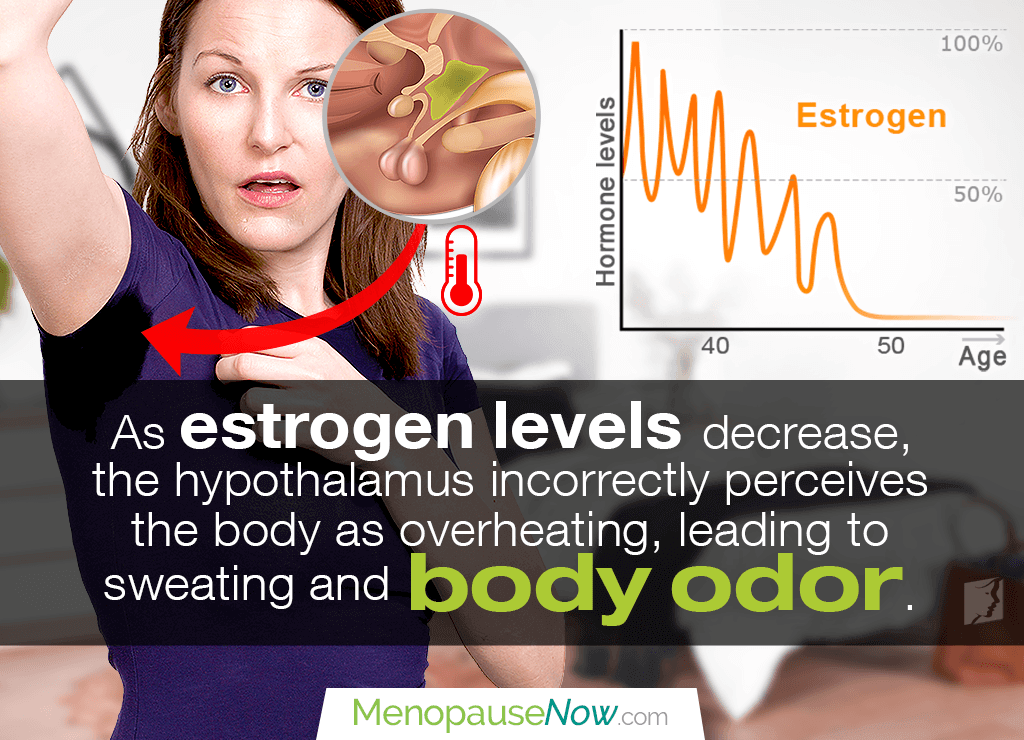Sweat and body odor are to be expected after exercise, but when smells persist despite no physical exertion, the cause might emanate from hormone imbalance. Read on to discover the link between female hormonal imbalance and body odor as well as other factors that might affect the symptom in order to uncover an effective treatment.
Hormonal Causes of Body Odor
Estrogen, the hormone that drops most dramatically during menopause, has a complex role within the brain as it is linked directly to the hypothalamus, the part of the brain responsible for body temperature control.
As estrogen levels decrease, the hypothalamus incorrectly perceives the body as overheating. This can lead to unnecessary sweating as the body tries to cool down and can all cause vasodilatory symptoms, like hot flashes or their nocturnal counterpart, night sweats. This excess sweat feeds bacteria, leading to body odor.
Also, sweat caused by anxiety - another one of the common menopause symptoms due to hormonal imbalance - smells worse than normal sweat. It is produced in larger sweat glands found primarily in the underarms and contains nutrients that bacteria feed off of to produce the smell.
Other Causes of Body Odor
While women's hormones and body odor are closely connected, especially during menopause, other factors might also contribute to unsolicited scents. They include:
- Liver disease
- Kidney disease
- Hyperthyroidism
- Skin infections
- Weight gain
- Diabetes
- Medications
Moreover, certain foods can also affect body odor. They include onions, cabbage, and cauliflower - due to their sulfuric compounds affecting sweat glands - as well as red meat, which leaves a residue in the intestines during digestion.
Recommendations
While hormones do affect body odor, and their fluctuations can seriously impact a woman's internal equilibrium, the good news is that she does not have to live with the condition permanently. Body odor treatments that focus on natural methods, such as lifestyle changes, can be effective when used in conjunction with herbal supplements. Click on the previous link to discover the most suitable combination of treatments for you and your long-term health.
Sources
- AARP. (2017). What's That Smell? Possibly a Health Issue. Retrieved September 11, 2019, from https://www.aarp.org/health/conditions-treatments/info-2017/body-odors-health-risks-fd.html
- Harvard Health Publishing. (2017). Dealing with the symptoms of menopause. Retrieved September 11, 2019, from https://www.health.harvard.edu/womens-health/dealing-with-the-symptoms-of-menopause
- Healthy Women. (2012). Stress Sweat. Retrieved September 11, 2019, from https://www.healthywomen.org/content/ask-expert/8989/stress-sweat
- Next Avenue. (2013). 5 Foods That Can Increase Your Body Odor. Retrieved September 11, 2019, from https://www.nextavenue.org/5-foods-can-increase-your-body-odor/



